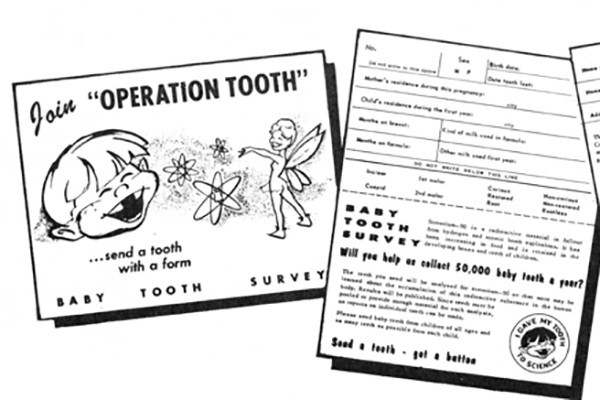Who Knew WashU?
 Question: Barry Commoner, who was a university biologist and leader in the environmental movement, helped conduct the St. Louis Baby Tooth Survey, begun in 1958. How many teeth were collected in that effort? Question: Barry Commoner, who was a university biologist and leader in the environmental movement, helped conduct the St. Louis Baby Tooth Survey, begun in 1958. How many teeth were collected in that effort?
Answer: D) By the end of the survey, in 1970, about 300,000 teeth had been collected and analyzed to determine fallout from nuclear bomb tests. The results helped lead to a ban on above-ground nuclear weapons testing.
Congrats to this week’s winner, Crystal Cannon-Henderson, who works at the Mallinckrodt Institute of Radiology and will receive an “I Knew WashU” luggage tag!
|